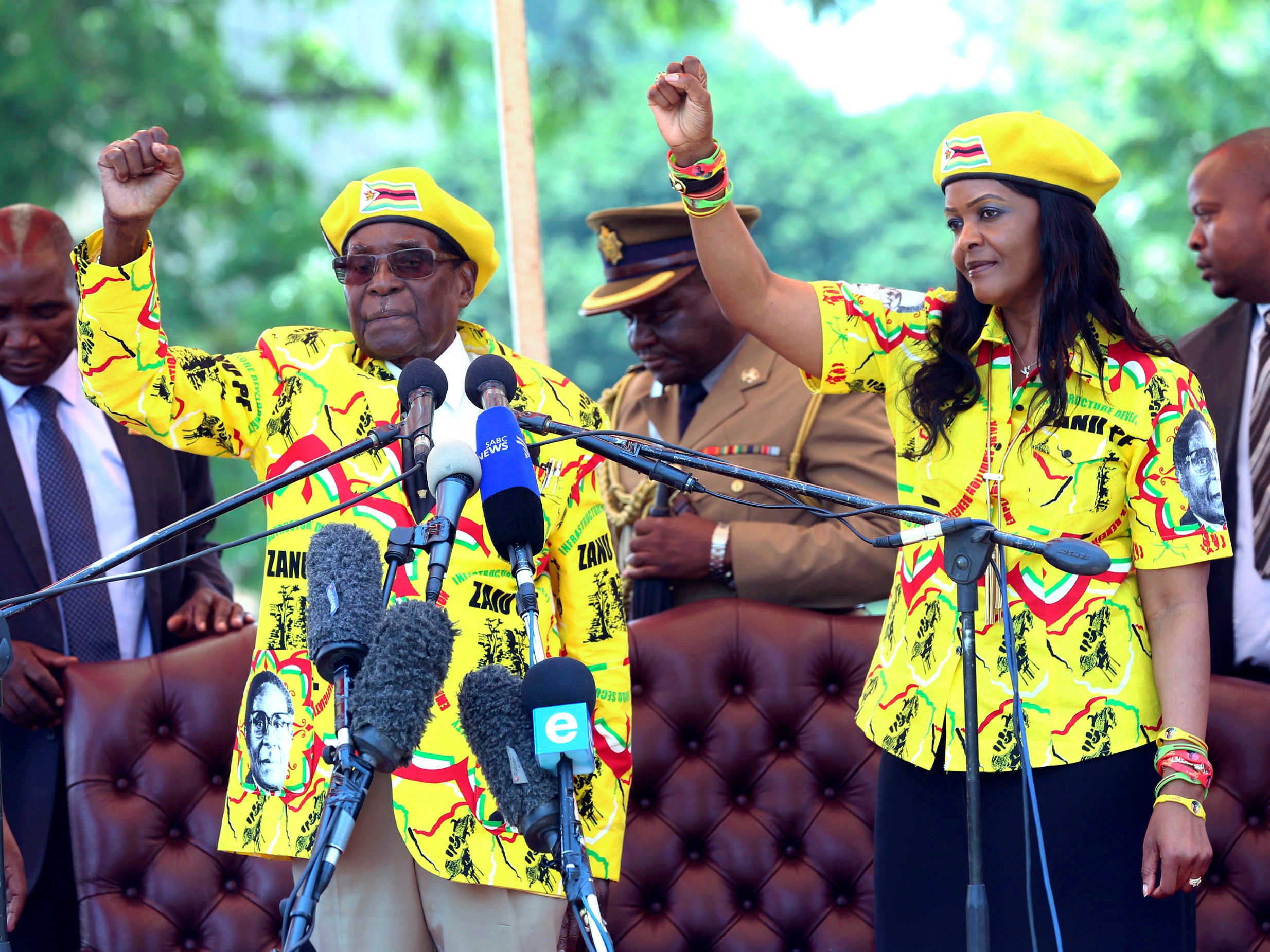Why I'm still not celebrating the arrest of Mugabe, whose men tortured my schoolfriend
Mark was my classmate for six years, and was one of many jubilant children who ran out of our classroom celebrating Mugabe’s victory in March 1980. Then his newspaper ran a story about an attempted military coup, and everything changed


We were in class when the news came.
The war was over, as was 90 years of white domination. Rhodesia was no more. Its former Prime Minister Ian Smith’s claim that he didn’t believe in black majority rule – “ever in Rhodesia, not in 1,000 years” – was dust.
Robert Mugabe, whose name had been banned in the local press, who had been jailed for 11 years for political activities, survived assassination attempts and called a black Hitler, was our new leader.
The white pupils froze. Almost as one, the black children jumped out of their seats, tore out of the classroom, and sprinted towards the swimming pool, dancing and making whooping cockerel sounds – “jongwe” in Shona being the symbol of the Zimbabwe African National Union (Patriotic Front) party, which had just won the country’s first democratic election. I followed them, caught in the moment, but not fully part of it.
This reaction – stunned fear among white people, jubilation among black people – echoed across the land.
In his first television address, Prime Minister-elect Mugabe said: “Let us forgive and forget; let us join hands in a new amity.” He encouraged white people to stay and rebuild the nation.
This week, 37 years later, one way or another Mugabe’s game is up.
In Shah of Shahs, Ryszard Kapuściński’s absorbing depiction of the end of Mohammad Reza Pahlavi’s despotic reign in Iran, he describes how Golam, a writer and translator whose work glorifies the Shah, and “who lived a splendid life, with free access to the palace and his books published in leather bindings”, suddenly boasts of his courage in publishing the line: “Now is the time of sorrow, of darkest night.”
It was at this moment that the revolution seemed certain: “Golam can sense the coming catastrophe. He is beginning to manoeuvre shrewdly, to shift his battle lines, to purge himself of blame, to pay tribute to the rumbling force that already resounds in his frightened and besieged heart.”
In Zimbabwe this week, the realignments have not been so subtle.
The state-owned Herald newspaper, a propaganda tool in the days of Ian Smith and ever since, went from denouncing the “treasonous” statements of Zimbabwe Defence Forces (ZDF) Commander General Constantine Chiwenga, the man who led the bloodless coup, to less than 24 hours later running his speech on its front page.
On Tuesday, Kudzai Chipanga, leader of the Zanu-PF party’s youth league, said that they were prepared to die to defend President Mugabe and the revolution. On Wednesday, he apologised on state television for the statement, which he said he was “ill-advised” to have read and had not authored: “We are still young people, we are still growing up, we learn from our mistakes and from this big mistake we have learned a lot.”
The gaudy local tycoon Phillip Chiyangwa, who until recently was singing Grace Mugabe’s praises on YouTube, posted a video on Wednesday insisting that he was only “about making money”, not politics.
There have been other reported attempts at military coup during Mugabe’s reign.
There was the strange case of Albert Matapo, a former army captain who in 2004 lived in Birmingham and was the subject of an undercover BBC sting in which he was caught providing false documents to asylum seekers, after which he returned to Zimbabwe and, seven years later, was accused of trying to recruit soldiers to overthrow Mugabe.
And in 1999, the Zimbabwe Standard ran a story that 23 soldiers were being held in Harare’s Chikurubi prison pending court martial after an attempted military coup. The editor of the paper was Mark Chavunduka.
Mark was my classmate for six years, and was one of the jubilant children who ran out of the room celebrating Mugabe’s victory in March 1980.
At the time, he had been secretly tuning in to the banned Voice of Zimbabwe radio station, and had “Mugabe fever”: “He epitomised everything that stood for black liberation. For equal rights. For an equal society,” he told me years later.
After his paper ran the coup story, Mark was arrested and questioned, then blindfolded and driven for what seemed like an hour, before being led down three flights of stairs to a basement. His blindfold was removed.
He and Ray Choto, the author of the article, were held in adjacent cells. They heard each other’s screams as they were beaten with fists, wooden planks and rubber sticks. They were forced to roll wet on tarmac, given electric shocks and had their heads submerged in canvas bags of water.
After nine days, Mark and his reporter appeared in court, limping, disoriented and with swollen limbs. They were charged with “publishing a false story capable of causing alarm and despondency” under Section 50 of the Law and Order Maintenance Act – which had been introduced by Ian Smith to target the likes of Mugabe. A medical examination proved beyond doubt that they had both been severely tortured.
Mugabe came on television and said: “Any media organisation which wilfully suspends truth necessarily forfeits its right to inform, and must not cry foul when extraordinary reaction visits them.”
In the years after this, I would meet Mark when he visited London, and drink with him in the Africa Centre in Covent Garden, or – defiantly, considering it was populated by Zanu-PF supporters and officials – in the bar in the Zimbabwe Embassy on the Strand.
Mark refused to leave Zimbabwe, despite reportedly being on a death list. “I don’t want to give Mugabe the satisfaction of saying he’s chased away the ‘troublemakers’… If all of us who aren’t happy with the way things are sought asylum, nothing will change.”
Mark died in 2002. Change has finally come to Zimbabwe, but, as yet, the euphoria is on hold.

Join our commenting forum
Join thought-provoking conversations, follow other Independent readers and see their replies